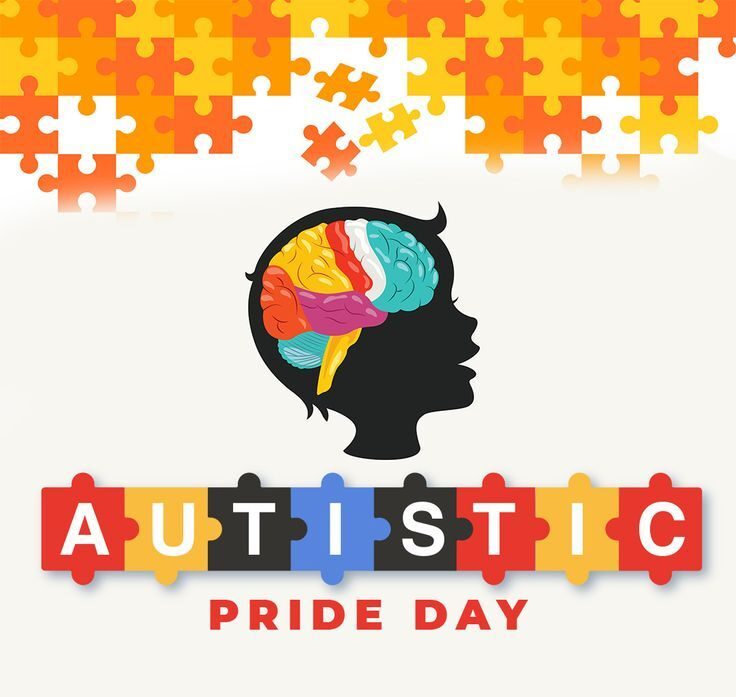🌈 Autistic Pride Day: History, Facts, FAQs, Timeline, Significance, Wishing, and Its Life-Changing Role in Society
Autistic Pride Day is more than a celebration—it’s a powerful movement that calls for recognition, respect, and inclusion for people on the autism spectrum. Observed annually on June 18, this global awareness day challenges stereotypes, celebrates neurodiversity, and uplifts the voices of autistic individuals around the world.
- 🧠 What Is Autistic Pride Day?
- 📜 History of Autistic Pride Day
- 📅 Timeline of Key Milestones
- 🌟 7 Empowering Facts About Autistic Pride Day
- 🤝 Significance of Autistic Pride Day
- 🎉 Observance: How Autistic Pride Day Is Celebrated
- 🎓 Frequently Asked Questions (FAQs)
- Q1: What is the theme of Autistic Pride Day?
- Q2: How is it different from Autism Awareness Month?
- Q3: Should non-autistic people celebrate it?
- Q4: Is autism a disability or a difference?
- Q5: How can I wish someone on Autistic Pride Day?
- 🌐 Global Impact and Daily Life Relevance
- 💖 Wishing Messages for Autistic Pride Day
- 🔑 Key Takeaways
- 🧾 Conclusion: Why This Day Matters Deeply in 2025 and Beyond
Let’s dive into the heart of Autistic Pride Day, understand its origin, message, facts, impact, and why it matters more than ever in today’s society.
🧠 What Is Autistic Pride Day?
Autistic Pride Day is an international celebration created by autistic individuals to promote self-acceptance, dignity, and recognition. It emphasizes that autism is not a disease to be cured, but a unique neurological variation that brings different ways of thinking, feeling, and interacting.
Unlike awareness days created by organizations, Autistic Pride Day was founded by people on the spectrum themselves—marking a powerful shift toward self-advocacy.
📜 History of Autistic Pride Day
🗓️ First celebrated on June 18, 2005
🎉 Initiated by the group Aspies for Freedom (AFF), a pioneering autism rights group
🧩 Modeled after LGBTQ+ Pride to reclaim pride in identity
🌍 Now observed in over 60 countries, with events ranging from community gatherings to educational workshops
“We are not broken. We are different—and that difference is beautiful.” —Autism advocate
📅 Timeline of Key Milestones
| Year | Milestone |
|---|---|
| 2005 | First Autistic Pride Day observed by AFF |
| 2006–2010 | The day spreads to Europe, India, Latin America |
| 2013 | UN recognizes the need for global neurodiversity dialogue |
| 2018 | Rise of social media campaigns like #AutisticAndProud |
| 2022 | Intersectionality becomes key topic: gender, race, and autism |
| 2024 | Events hosted by schools, libraries, NGOs, and corporate allies globally |
🌟 7 Empowering Facts About Autistic Pride Day
It’s founded by autistic people, not outsiders—making it uniquely empowering.
The day promotes neurodiversity, the idea that brains work in many valid ways.
The symbol of Autistic Pride Day is the rainbow infinity sign—representing diversity and infinite possibilities.
Autism affects approximately 1 in 100 people globally.
It confronts stereotypes—many autistic people are highly creative, empathetic, and intelligent.
Advocacy now includes autistic adults, women, and BIPOC voices that were once ignored.
The day celebrates abilities, not disabilities, promoting confidence and self-respect.
🤝 Significance of Autistic Pride Day
Autistic Pride Day is important because it:
✅ Validates self-identity without judgment
✅ Encourages acceptance over assimilation
✅ Shifts the narrative from “cure” to inclusion and support
✅ Promotes understanding that autism is not a linear spectrum, but a constellation of traits
Instead of asking “How do we fix autism?”, it inspires the question:
“How do we fix society to be more inclusive?”
🎉 Observance: How Autistic Pride Day Is Celebrated
Autistic Pride Day events are joyful, inclusive, and led by autistic voices. Observance activities may include:
🧩 Panel discussions on autism in schools, work, and relationships
🎨 Art exhibits showcasing autistic talent
🎤 Open mic and storytelling sessions
📚 Workshops for parents, educators, and employers
🫂 Support circles and sensory-friendly community events
🌐 Social media takeovers with hashtags like #AutisticPrideDay and #NeurodiversityMatters
🎓 Frequently Asked Questions (FAQs)
Q1: What is the theme of Autistic Pride Day?
There’s no official theme every year, but neurodiversity, empowerment, and inclusion are always central ideas.
Q2: How is it different from Autism Awareness Month?
Autistic Pride Day is by and for autistic individuals. It focuses on pride, empowerment, and rights, while other events may still use outdated medical models of autism.
Q3: Should non-autistic people celebrate it?
Yes! Allies play a huge role. Listening, learning, and supporting inclusion efforts are ways non-autistic people can show respect.
Q4: Is autism a disability or a difference?
Autism can be both. It’s a neurological difference, and for some, it’s also a disability when societal barriers exist.
Q5: How can I wish someone on Autistic Pride Day?
Try messages like:
“Proud to celebrate your unique brilliance today and always.”
“Your mind is a beautiful masterpiece—happy Autistic Pride Day!”
“Here’s to more acceptance, inclusion, and celebration of YOU.”
🌐 Global Impact and Daily Life Relevance
🧠 In Education
Encourages neurodivergent learning spaces
Promotes the use of visual schedules, sensory tools, and customized teaching strategies
👨💻 In the Workplace
Encourages inclusive hiring and neurodiverse teams
Autism-inclusive workplaces often benefit from high productivity, focus, and honesty
🏠 In the Home
Promotes understanding of sensory needs, routines, and emotional support
Increases empathy and better family dynamics
🧑⚖️ In Society
Inspires advocacy for disability rights legislation, healthcare access, and anti-discrimination laws
💖 Wishing Messages for Autistic Pride Day
💬 “Your uniqueness is not a weakness—it’s your superpower.”
💬 “Celebrating all colors of the spectrum today. Happy Autistic Pride Day!”
💬 “The world is brighter with neurodiversity. Shine on!”
💬 “We see you. We hear you. We stand with you.”
🔑 Key Takeaways
Autistic Pride Day promotes self-love, empowerment, and respect.
The autism spectrum is vast, and no two people experience it the same way.
Acceptance and accommodation are more impactful than awareness alone.
Neurodiversity is natural—not a flaw to be fixed.
Inclusion leads to stronger communities, schools, and workplaces.
🧾 Conclusion: Why This Day Matters Deeply in 2025 and Beyond
Autistic Pride Day is more than a date on the calendar—it’s a global movement that calls for real change. It reminds us that every brain is valuable and that society must evolve to accommodate all kinds of thinkers.
In a world that often tries to “normalize” or “fix” difference, this day boldly declares: difference is strength.
So, whether you’re on the spectrum, love someone who is, or just want to be a better ally—June 18 is your opportunity to listen, learn, and lift up.
Let’s continue to celebrate neurodiversity, amplify autistic voices, and build a world where being different is not just accepted—but embraced.








